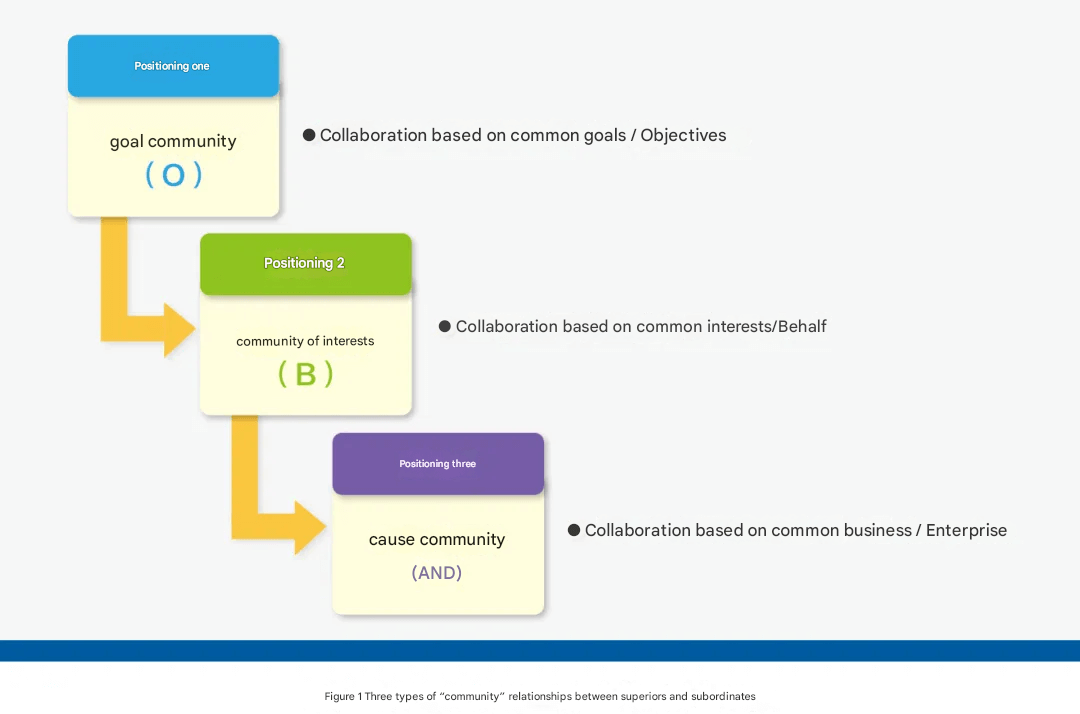In developing supervisory talent, employees typically progress from managing tasks to managing people. If you're unclear about the difference between these two stages, just remember: when it comes to performance reviews, task managers only have the right to make suggestions, while people managers have the final say.
Before diving into the essential skills for entry-level supervisors, we must first define the type of supervisor we are discussing. Are we talking about team leaders, section chiefs, or managers?
Every company has different titles and job descriptions. Even identical titles might hold different meanings depending on the company. A section chief in Company A might be a team leader in Company B or a manager in Company C. This can easily lead to misunderstandings in discussions.

Two Stages of Supervision: Managing Tasks vs. Managing People
Stage 1: Managing Tasks
Task managers focus on completing assignments. They are usually responsible for task delegation, progress tracking, and overseeing the success or failure of specific areas (small projects or modules). Common job titles for this stage include Staff, Team Leader, Section Chief, Technical Manager, or Project Manager, depending on the company. Some might call this a "junior supervisor."
Stage 2: Managing People
People managers focus on human resources, including interviewing and hiring, performance evaluations, talent development, and building teams.
Generally, employees go through the task management stage before being promoted to people management. However, some companies combine both roles, giving supervisors responsibilities for managing both tasks and people.
If you're still confused about the difference, the simplest way to judge is by considering performance evaluations: Do you have the right to suggest, but still need approval from a higher-up? Or do you have the final say? Task managers usually only have the right to suggest, while people managers hold decision-making power.
The only exception is in promotions, where two levels of approval are typically required, usually from a manager and an associate director or department head.
Now that we’ve clarified the concept, let’s proceed to discuss the skills supervisors must learn, based on their promotion process. The earlier in your career, the sooner you need to master these skills.
Skills for Task Managers:
-
Mindset Shift
Be prepared to play the "bad guy" when needed. You can't always be a people pleaser. Take responsibility and step up when necessary, showing your subordinates that they can rely on you.
Many people struggle with this transition—they're unwilling or embarrassed to play the bad guy, which prevents things from progressing smoothly.
Additionally, learn when to stay quiet and avoid unnecessary conflicts. Not everything is black and white, and you’ll need to develop political sensitivity in the workplace. -
Project Management
From basic PDCA concepts to industry-standard processes, such as Project Management Professional (PMP) certifications or ISO standards, supervisors need to develop professional management skills.
Entry-level supervisors must demonstrate a solid level of expertise to earn respect from their teams. -
Organizational Communication
Communication with parallel departments requires both a soft and firm approach. When should you soften your stance? When should you stand firm to ensure cooperation?
It's important not to always take a hard-line approach, as this will eventually backfire.
Also, how should you communicate with both superiors and subordinates? A good communicator doesn't merely pass orders down without any modification. -
Conflict Management
How do you handle conflicts between subordinates, between yourself and a subordinate, or between different departments?
There are various ways to handle conflict, depending on the situation and the environment. -
Risk Management
Here are some common risk management scenarios: -
Schedule changes: When goals change, plans change accordingly. How do you adjust?
-
Resource shortages: If a team member is suddenly unavailable, does the department have contingency plans?
-
An extreme example: A colleague gets into an accident and can't work for a month. How should the supervisor respond? Risk management is about anticipating problems, preventing them from happening, and preparing contingency plans (Mitigation Plans).
-
Presentation Skills
This skill can be broken down into three main parts: -
Stage presence: This includes articulation, stage presence, and crowd control. Some people command attention on stage, while others make the audience sleepy.
-
Content design: What will you talk about, how long, and how? The key is to understand the audience and identify the desired outcome.
-
Visual presentation: Know when to invest time in crafting slides. Not every presentation requires a lot of effort, but for important ones, such as those presented to clients or executives, it's crucial to seize the opportunity to shine.
-
Problem Analysis and Prevention
Task managers focus on solving technical and execution problems. People managers look at processes, cross-department issues, or even personnel-related problems. When necessary, adjust the system to prevent the problem from recurring. -
Negotiation Skills
Understand the purpose and techniques of negotiation, and know which resources can be used or exchanged.
This skill is useful for dealing with subordinates, parallel departments, superiors, or clients. -
Sales Skills
Sell your ideas so that others willingly accept them. Whether proposing a suggestion to your boss, pitching a cooperation model to another department, or convincing a subordinate to do something they’re reluctant to do, these are all acts of selling.
Master this skill, and the sky’s the limit.
Skills for People Managers:
-
Leadership and Management
Different individuals—whether veterans, newbies, rising stars, or average performers—require different leadership approaches tailored to their situations. -
Talent Development
A supervisor’s performance is measured by the performance of the entire department, not just individual achievements. The stronger your team, the more successful the unit will be.
Developing talent is an unwritten rule for supervisors seeking promotion. A supervisor who can’t groom talent will remain stuck at the entry level. From the company’s perspective, this builds a pipeline of talent; from a personal perspective, smart supervisors cultivate powerful allies. -
Interviewing Skills
Hiring mistakes are costly, affecting team morale, work progress, and wasting time and money. Scientific methods exist to guide interviewers in evaluating candidates—it's not just about asking random questions. -
Performance Management
How do you set goals for yourself, your team, and your subordinates? When subordinates miss their targets, how do you explain their performance reviews to them?
If done well, employees will feel motivated to improve. If done poorly, they may leave after the holidays.
Ultimately, it’s up to you to decide whether to give existing staff another chance or gamble on new talent.







